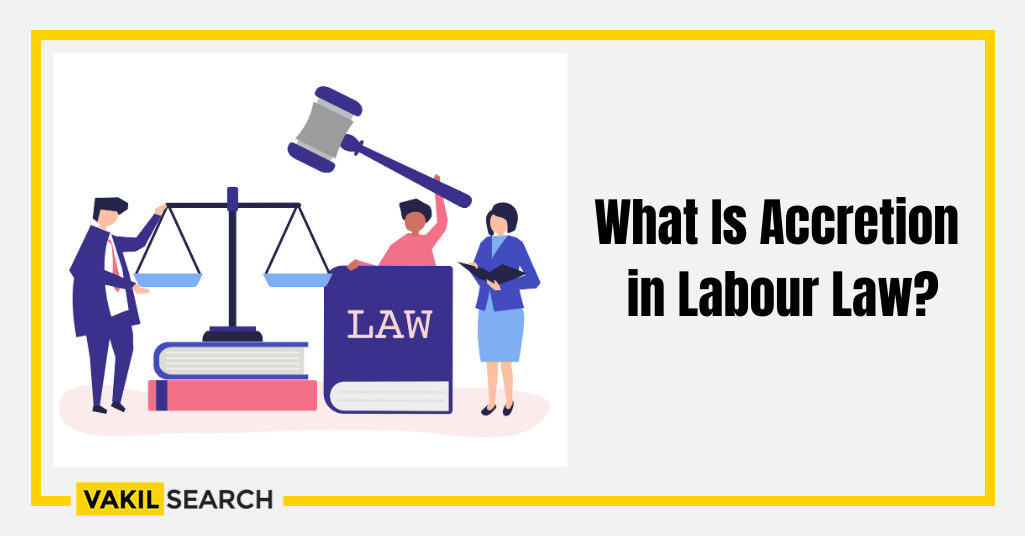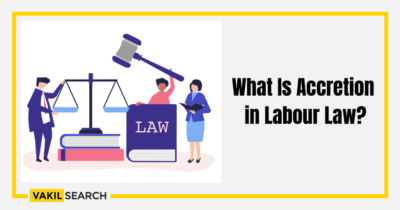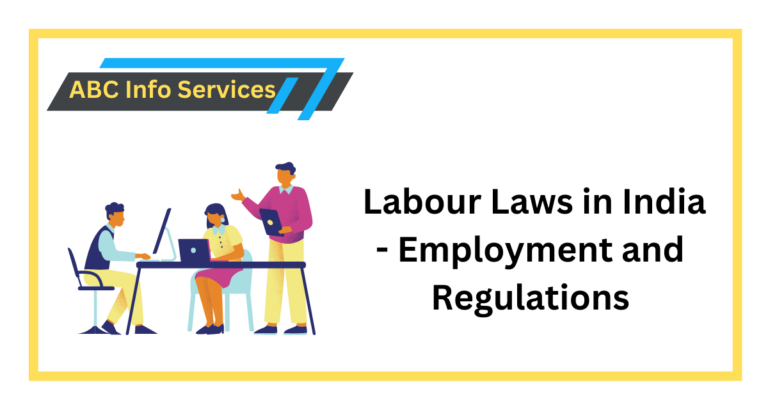The article makes the readers understand the terminology related to accretion in the context of labour law. Read on to know more.
What is Accretion?
Accretion refers to the growth or addition in the context of some specific process. But when it comes to labour law, accretion can be defined as the addition of a group of labour to the existing labour force without undergoing an election. Therefore, accretion occurs by operation of law. For instance, a group of labour are transferred to another production unit wherein labours are already a part of a well-recognized labour union, accretion happens when the former group of labour become a part of the new production unit. They can however be working under a new representative, and/ or a new employer. In this article, we will explore what is accretion in labour law? and its significance.
What Are the Different Terminologies Used in Labour Law?
- Adjuication: It is referred to as the process of settling grievances, occurring with misinterpretation of any collective agreement or out of any disciplinary action that results in financial loss, by a third party. It is followed in the Public Service unit which comes under Public Service Staff Relations Act
- Agreement and Collective: It is a contract between the labour union which acts as a bargaining agent and the employer of the unit. It carries the details of wages of labours, working hours, benefits, rights of workers and their union, and process to be followed at the time of disruption or settling grievances
- Appeal: It is a process of asking for rectification from the Public Service Commission against any issues faced at the time of job appointment. This also applies to the Public Service unit only which comes under Public Service Staff Relations Act
- Arbitration: This is a process of negotiation and settling an internal dispute with the help of a third party whose decision is final and accepted by all. This third party is termed an Arbitrator. The Arbitrator can be a single person or a group of people (can be called ‘board’) with a chairperson and one or more representatives of the labour union
- Bargaining Agent: The union appointed by the Labour Relations Board or similar government agency as the exclusive representative of all employees in a company which takes an active and major part in collective bargaining
- Bargaining Unit: A group of workers in a department, production unit, firm, or industry determined by a Labour Relations Board or similar government agency, as eligible for representation by a labour union for the purpose of collective bargaining
- Base Rate: The lowest rate of payment, calculated in hourly terms, for the lowest skilled worker group in the bargaining unit is called the Base Rate
- Benefits: Non-wage benefits, such as medical expenses, pensions, health insurance, life insurance, paid leaves etc. are considered benefits to the employees
- Cost of Living Allowance: It is a periodic increment based on changes in the consumer price index
- Dues: Yearly payment by the union members to financially support the smooth operations of their union
- Grievance: A written complaint against the management by one or more employees or by their union against a breach of the collective agreement is called a grievance. The process of handling and settling grievances is normally get mentioned in the collective agreement
- Injunction: A court order restricts an employer or the union to commit or engage in certain activities.
AC Petition or Amendment of certification Petition
It is a process where the public employer or union certified by the board to represent a unit of labour may file a petition to the board to amend the certification. It can be done
- to resolve uncertainty in the description of a certified unit.
- to cast a change in the role and responsibilities of certain employees in the unit.
- to reflect a change in the name of the employer or in the affiliation of the labour union.
The amendment certificate should be signed by a minimum of two shareholders or else by an authorized government office and needs to be filed with the State Secretary so that the necessary action can be taken.
How to File a Petition?
The petition has to be filed with the State Board of Mediation by the authorized representative of the public employer with a copy of the description of the present certified bargaining unit along with the date of the certification, purpose of the AC, and a written statement from the petitioner to clarify the reason behind filing the petition. The petition is scrutinised to check whether it is accurate and complete. Thorough research will get conducted to find any previous cases that are already being filed with the board.
Request for Providing Required Information
The State Board of Mediation will request the other party of the AC petition to submit the points that they have on the filing of the petition.
After achieving the information now, the Board will evaluate whether the required criteria have been achieved. It is the board who will make the decision if the criteria do not fulfil, they can either set a date for the hearing before the full board or directly dismiss the petition.
On the other hand, if the petitioner does not fulfil the criteria, then their petition will be dismissed by the chairman of the board. If both parties fail to agree, then a hearing date has to be issued, once again by the board.
How to Schedule the Date of Hearing:
Two board members including one from the employer and one from the employee side, the petitioner party, and a court reporter will be contacted by the State Board of Mediation to schedule a date of hearing. A notice will be issued at least 10 days prior to the hearing by the chairman of the board to the court reporter, petitioners and the two board members.
Please note that the petition is conducted by the State Board of Mediation on the basis of all verified information. It is considered investigatory and not an adversary. It will help the board to get a complete factual record on the basis of which they will take necessary decisions. The decision taken during the hearing will be issued by the board to all relevant parties.
Some of the Landmark Judgements of India: Case Studies
- A.K Gopalan vs. State of Madras, 1950: In this case, A.K Gopalan, who was a communist leader, was kept in the Madras Jail in 1950. He appealed to restore his fundamental rights. The Supreme Court of India passed a landmark decision in which the court ruled that Article 21 of the Indian Constitution did not require Indian Courts to apply a due process of law, which is the legal requirement that the state must respect all legal rights of a person.
- Kesavananda Bharati Sripadagalavaru vs. The State of Kerala,1973: It is a landmark decision of the Supreme Court that defined the basic structural concept of the Indian Constitution. It is also referred to as the Fundamental Rights Case
- Maneka Gandhi vs Union of India in 1977: In 1977, the ruling party confiscated the passport of Mrs Maneka Gandhi. She filed a petition in the Supreme court to regain her fundamental right. It was a landmark decision of the Supreme Court of India in which the Court significantly expanded the interpretation of Article 21 of the Constitution of India
- Shayara Bano vs Union of India & Others in 2017: In 2016 the Indian Supreme Court has taken a landmark decision by rejecting the process of triple talaq when Shayara Bano, divorced by her husband Rizwan Ahmad after 15 years of marriage by triple talaq process, filed a petition in the Supreme court.
Conclusion
To live in a society, we all have to follow certain rules and regulations. Whether it is a breach of contract in a firm or a compromised fundamental right of an individual, the court remains to be the last resort for common people. In our country, every day on every corner, there are millions of cases getting filed monthly. Vakilsearch is aimed toward research work and brings necessary information about a diversified topic. Here we are helping people by providing important information regarding Accretion in Labour Law. Please feel free to reach out as and when required.
Read More,










